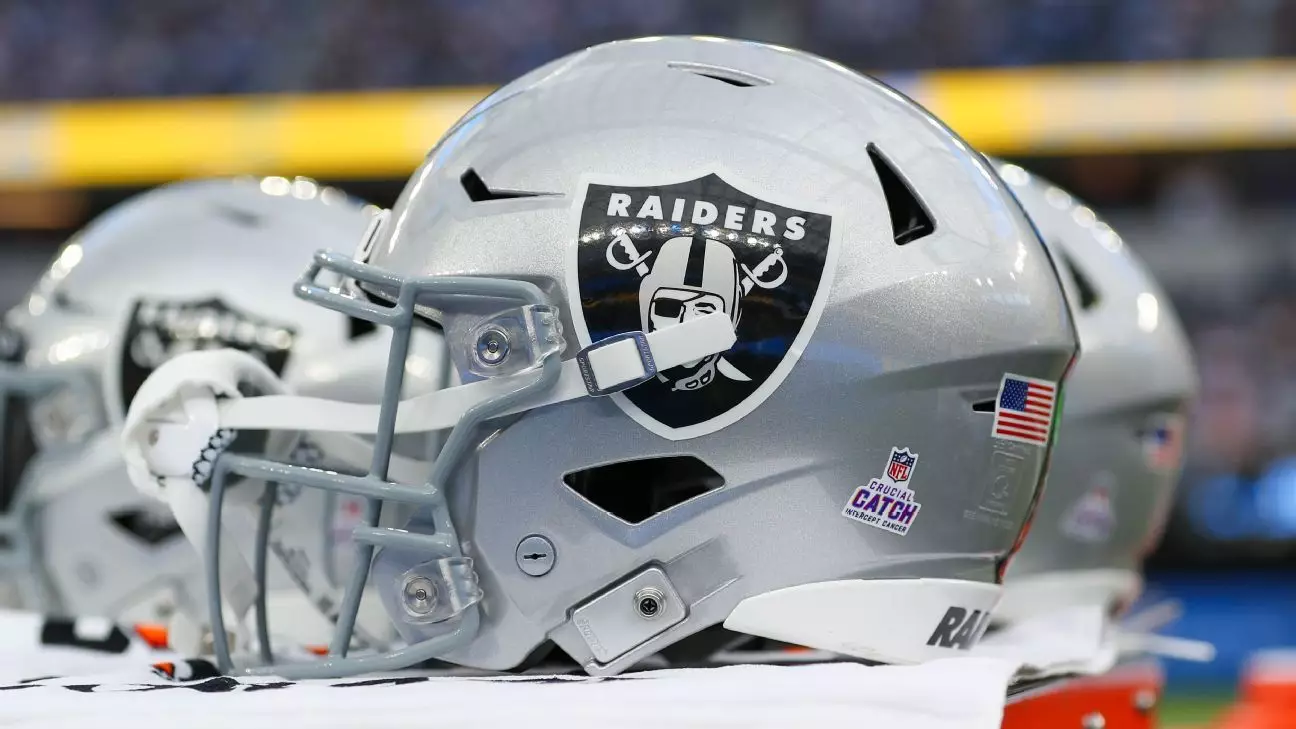As the NFL draft approaches, the Las Vegas Raiders find themselves at a critical juncture, with General Manager John Spytek steering the conversation toward a more nuanced understanding of team building, particularly in the running back position. His recent comments during a draft press conference underscore a belief that has been overshadowed in recent years—the intrinsic value of elite running backs in reshaping offenses. Spytek’s assertion, “I don’t know where we got to a place where we don’t feel like running backs are valued,” holds significant weight. The NFL has seen teams increasingly prioritize positions like quarterback and wide receiver, often neglecting the heart of the ground game. Yet, in a league that thrives on dynamic play styles, the running back remains an essential cog in the machinery of a well-rounded offense.
In the context of this philosophy, Spytek’s examples, such as Saquon Barkley’s transformative impact on the Philadelphia Eagles, serve to reinforce his argument. The Raiders’ backfield woes, evidenced by their last-place finish in rushing yards, have precipitated an urgent need for change. The spotlight now shines brightly on prospects like Boise State’s Ashton Jeanty, whose impressive college stats—2,601 rushing yards and 29 touchdowns—position him as a potential game changer. By prioritizing running backs, Spytek may well be shifting the paradigm within his organization, challenging the status quo and reestablishing a cornerstone of offensive prowess.
Diving Deeper into Potential Picks
Spytek’s reluctance to comment directly on specific prospects might stir suspicion about their draft strategy; however, the subtext of his words suggests a carefully calculated approach. By fostering an “open-minded” stance toward drafting quarterbacks, the Raiders ensure that they are not cornering themselves into a narrow draft strategy. The inclusion of Jeanty alongside the consideration of quarterbacks like Shedeur Sanders indicates a hybrid approach: one that seeks to bolster the offense at multiple crucial touchpoints.
While the recent acquisition of Geno Smith—encompassing a hefty two-year deal worth up to $85.5 million—implies a level of confidence in the quarterback position, the absence of guaranteed funds beyond 2026 introduces an intriguing dynamic. Spytek’s acknowledgment of this fluidity reflects a broader understanding that securing a franchise quarterback involves not only immediate needs but also long-term planning. His strategy seems to embrace the duality of urgency and foresight, suggesting that the Raiders could benefit from mentoring a young quarterback while solidifying their run game with a top-tier back come draft day.
Integrating Offense and Defense for Success
To successfully reestablish the Raiders as contenders in the AFC, integrating both offensive and defensive strategies is paramount. The franchise’s historical struggles have stemmed from a lack of cohesion within the roster. The decision to invest high draft picks in running backs and quarterback development could signal a holistic approach to rebuilding. The running game relies heavily on offensive linemen and tight ends who can block effectively, while the series of quarterback visits suggests that the Raiders are not simply looking to patch any more holes but are committed to a cohesive vision of their future.
Spytek’s insistence that “you can’t have enough good players in certain positions” encapsulates a mindset that has defined successful teams throughout NFL history. By focusing not only on filling immediate gaps but also on fostering a culture of high competition for starting roles, the Raiders may recapture the essence of what makes a team not just good, but formidable. The emphasis on scouting and evaluating various quarterback prospects hints at a broader strategy, one that values depth and adaptability over fleeting success.
Ultimately, John Spytek’s vision for the Raiders transcends mere strategy; it is about reinvention and the audacity to challenge established norms. As the draft looms, every decision holds the potential to redefine not just the team itself, but the very culture surrounding the Las Vegas Raiders—a franchise reborn through astute drafting and a commitment to building a robust, multifaceted roster for years to come.


Leave a Reply